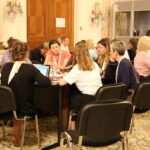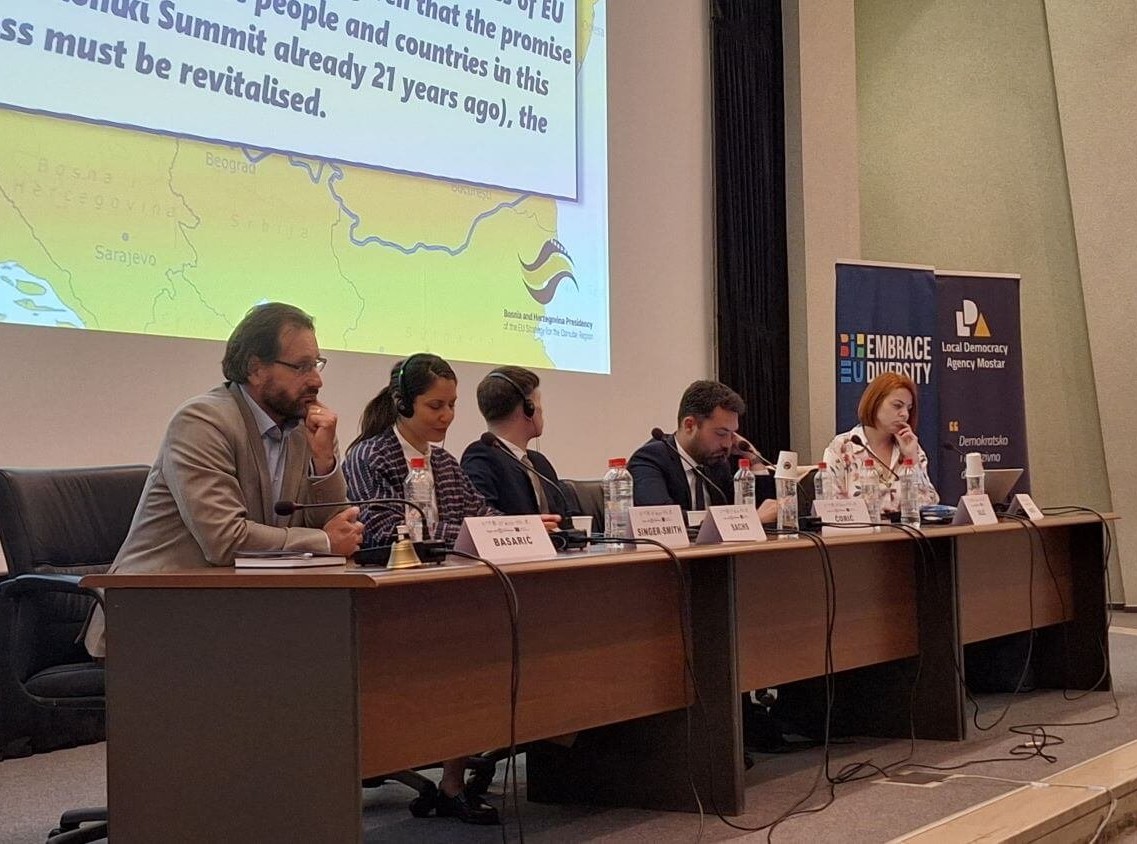The first National Participation Day in Bosnia and Herzegovina took place in Sarajevo on 13 May 2025. Organised by the Danube Civil Society Forum in collaboration with the Directorate for European Integration and the Local Democracy Agency Mostar, the event focused on the EU enlargement process and the role of the EU Strategy for the Danube Region (EUSDR) in supporting Bosnia and Herzegovina’s path toward EU membership.
The event aimed to inform civil society organizations (CSOs) in Bosnia and Herzegovina about the EUSDR and to update EUSDR stakeholders on the current work, challenges, and perspectives of CSOs in the context of EU enlargement. This initiative also served as preparation for the upcoming 12th Danube Participation Day and the 14th Annual Forum of the EUSDR, to be held under the Presidency of Bosnia and Herzegovina. Through interactive discussions and workshops, participants explored the contributions of civil society and local communities in areas such as environmental protection, cultural heritage preservation, reconciliation, and civic engagement in reform processes. Nearly 55 participants attended, including civil society representatives from across Bosnia and Herzegovina, delegates from international institutions (including Montenegro, Austria, and Ukraine), representatives of the European Commission’s DG REGIO, Danube Strategy Point and EUSDR Priority Area 10.
Opening remarks were delivered by Dženana Dedić (LDA Mostar) and Stefan Lütgenau (Danube Civil Society Forum). Karolina Jasinska-Mühleck (DG REGIO) emphasised the importance of multilevel governance and regional cooperation in advancing EU cohesion and enlargement policies. Naida Dilić from the Directorate for European Integration presented the priorities of Bosnia and Herzegovina’s 2025 EUSDR Presidency. Further contributions came from Raphael Sachs (Danube Strategy Point), Claudia Singer-Smith (EUSDR Priority Area 10), Emir Čorić (ALDA), and Halko Basarić (Association of Municipalities and Cities), all highlighting the essential role of local actors and civil society in democratic reform and EU accession. During the thematic session, “Enlargement, the EUSDR, and the Local Level: Three Policy Examples,” civil society representatives showcased initiatives in environmental protection, cultural heritage, and citizen participation. Speakers underlined how local engagement and cross-sector cooperation can drive sustainable development, reconciliation, and democratic progress in the EU integration process.
In the second half of the conference, participants took part in three parallel working groups, each building on themes discussed earlier: environmental protection and disaster resilience, cultural heritage and reconciliation, and models of local participation. Each group exchanged practical experiences and explored strategies to strengthen local contributions to Bosnia and Herzegovina’s EU integration. The discussions highlighted several common challenges, including fragmented legal frameworks, weak institutional cooperation, low civic engagement, and limited use of participatory methods. Participants also noted the politicization of key issues and the absence of integrated, cross-sector strategies. These outcomes aim to guide future cooperation and policy development at the local and regional level within the EUSDR framework.
A mmore detailed insight into the results of the 1st Danube Participation Day in Bosnia and Herzegovina can be found on the Danube Civil Society Forum website.




